Too many business leaders say they have a company strategy. Heavily armed with goals and slogans, it seems like they do have everything under control. But what if they don’t? What if they still make mistakes by implementing poor decisions that could easily end in disaster?
Well, today we’re diving into such instances to see how big and small businesses are no strangers to, basically, ruining themselves. And those who survived have a decision on their record that still makes their shareholders’ hair crawl and that they regret for the rest of their lives.
“What company bankrupted itself (or nearly bankrupted itself) through poorly thought-out and/or unnecessary decisions?” Redditor WolfgangCaesor asked people. The thread was upvoted 44.3k times, so it seems like many found it interesting. Below we rolled up some of the most illuminating cases that show how one bad step can ruin a whole marathon, even for the best runners.
#1
A bakery that sold cupcakes and cookies (no full-sized cakes) across the street from a liberal arts high school. The school is known for not only being VERY arts-centric but also for being very LGBT-friendly. If I had to guess, I'd say that a full 33% of the kids there are LGBT of some type. EVERY student is supportive of LGBT rights and has had protests in support (often, with the school's staff being supportive and helping to organize and have a safe area for them to protest in). The neighborhood is VERY artsy and LGBT-Friendly.The kids would come in every morning before school, pop across the street at lunch, and stop by before heading home after school. The Bakery made BANK on these kids. The parents would buy from there for birthday parties and events all the time (like 6 doz. cupcakes for the birthday). So they were doing well.
Suddenly, "baker's rights" became a thing and refusing to make a gay wedding cake was all over Fox News. The owners of the shop were Fox News watchers and thought to themselves, "Yeah, why should we bake a gay cake?" They proceeded to put a sign in their window announcing to the world that they were Christians and wouldn't bake a gay wedding cake.
REMINDER: THEY DIDN'T DO WEDDING CAKES AT ALL!!! Furthermore, nobody had asked them to do one.
Strangely, they went under in just over four months. It's almost like advertising your prejudices against the people you depend on for your income isn't a good idea. Not only did the kids stop going, but they told their parents and their other friends' parents not to go there anymore because they're prejudiced. So their ENTIRE customer base stopped going. The houses on that street are, no joke, 50% owned by well-to-do LGBT couples. So they even lost their foot-traffic business.
By the time they figured out their mistake, it was too late. It was burned in the community's mind that this was NOT where you wanted to shop.
Of course, they screamed and ranted about how they were being persecuted by people not spending their money at their shop, how they were being "attacked" for their beliefs by the kids going to McDonald's instead of their shop.
IDIOTS! They had it made. But they had to open their traps and spew hate on their own customer base. They could have been in business for another 40 years! That school expanded a couple of years later to add another full building and a further 500 kids, merging with the city's public school system, which FURTHER would have increased their customer-base.
SMH.
#2
JCPenney tried to stop bullsh**ting customers and it backfired. They said no more sales, they’re just going to price everything low, because pretty much all sales at department stores are lies anyway. You’re not really getting 70% off, the retail price was deliberately set stupid high to convince you it was a great deal. But the discount price is the actual value of it.So yeah JCPenney’s heart was in the right place but ultimately it failed because customers are really that dumb and would rather be lied to.

Image credits: Phil_Drill
#3
In 1998 Yahoo refused to buy Google for $1 million.In 2002 Yahoo offered to buy Google for $3 billion, but Google wanted $5 billion. Yahoo refused the offer.
In 2006 Yahoo was to buy Facebook for $1.1 billion, but Yahoo's Ceo lowered it to $800 million and Facebook backed out.
In 2008 Microsoft offered to buy Yahoo for $44.6 billion, but Yahoo refused.
In 2016 Verizon bought Yahoo for $4.6 billion.
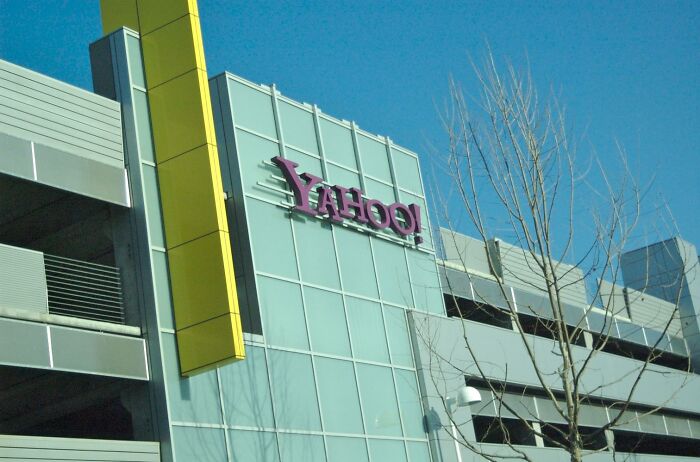
Image credits: WickedCoolUsername
#4
Yahoo bought Tumblr for $1.1 billion and sold it for $3 million 6 years later
Image credits: fork_hands_mcmike
#5
My hometowns shopping mall and movie theater made a rule that no one under 18 could enter after 3pm without a parent present. This included the week and weekend.You know how malls survive without teenagers with disposable income? They don't.
#6
Steve Ballmer nearly killed Microsoft. He thought smart phones were stupid. Thought the cloud was dumb. And did a few more things that were just egregiously stupid and took on a lot of debt. Their new CEO is doing a great job though.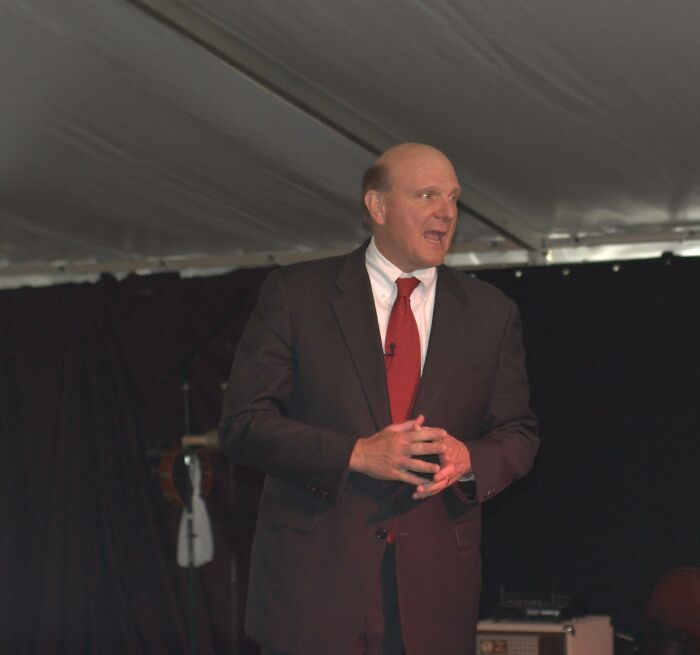
Image credits: Kdog122025
#7
One time Red Lobster offered an unlimited king crab leg deal, cause they brought the servings out slowly and were like 'nobody is gonna sit there for 6 hours and just eat king crab legs'.Actually, lots of people did. So many they lost millions.
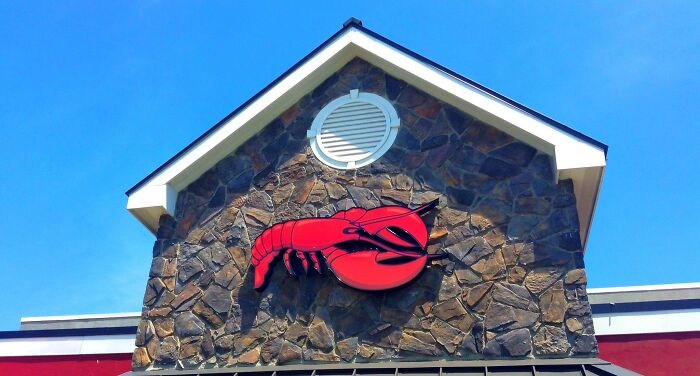
Image credits: Omniwing
#8
Nokia. Never made the transition to smartphone, now it's as good as dead.#9
An A&W burger company tried to outsell McDonald's 1/4pounder with a 1/3pounder but Americans thought 1/3 was less than 1/4 so it failed really fast.#10
I don’t know if they’re gone but SKYPE sh*t their pants during the race they had market lead and ten years of practice in.Then covid hit and everyone was stuck in doors but wanted to still talk face to face zoom popped up while Skype was cleaning up in the bathroom.

Image credits: audio_54
#11
Quiznos.Corporate office decided to buy the vendors, and then contract all of the franchises to only buy materials from Corporate with a price hike.
The margins got way too high and all of the stores went out of business. They shot themselves straight in the foot.
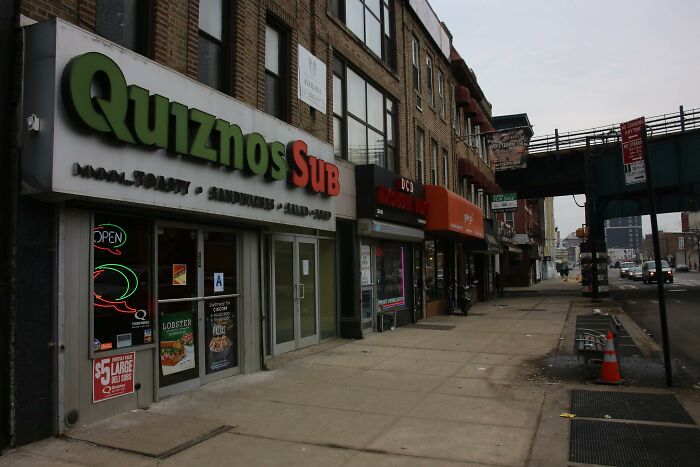
Image credits: JoshBobJovi
#12
Sears ended their catalog/mail order business in 1993. For over 100 years they had sold everything from hubcaps to houses via mail order and shipped them all over the country.Amazon was founded in 1994.
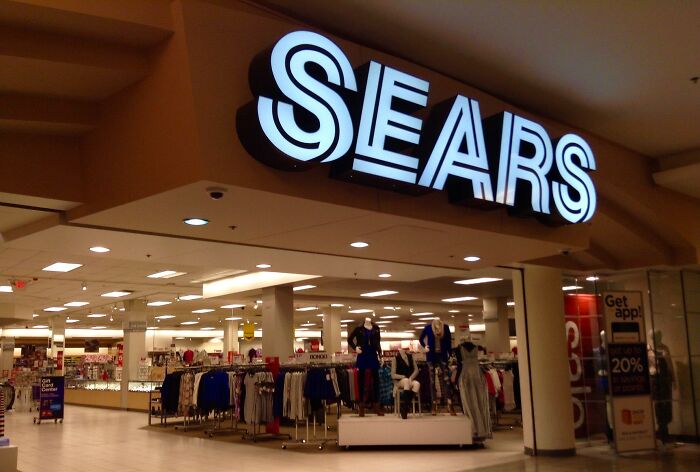
Image credits: kkngs
#13
Ayds diet candy.They didn’t change their name after the emergence of the AIDS virus.
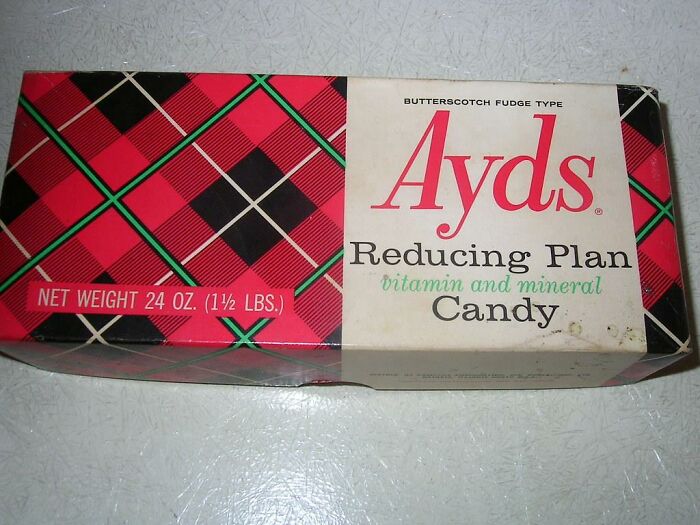
Image credits: NoSoul2335
#14
Photobucket changing its tos back in 2017 to require a yearly fee for all those images you previously posted on it for free.
Image credits: drizzes
#15
There was a donut shop by my high school. Opened at 6am and closed at 5pm so students would be there every day before school started at 7:30 and after school ended at 2:15. They changed their hours to 8am-3pm and couldn’t make anymore money. They shut down a few months after the change.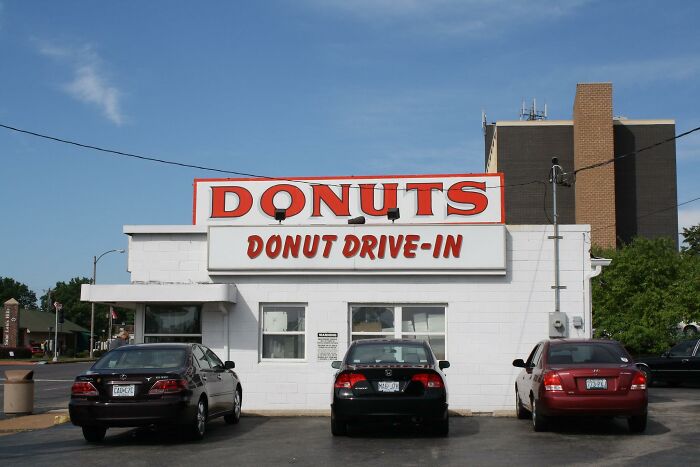
Image credits: hurr4drama
#16
Schlitz. Throughout the '60s they were one of America's biggest national beers, a tough competitor to Budweiser and Pabst. They hired a new CEO, from within, in about 1974 or so who was greatly enamored of a study which showed that about 30% or so of beer drinkers couldn't distinguish their putatively favorite beer from other brands in taste test ... so why, he asked, are we spending so much money making our beer so distinctive when it doesn't matter to our customers? He oversaw the introduction of a slimmer brewing process that included replacing barley with corn syrup and using silica gel as a preservative during the brewing process that they would then filter out afterwards, i.e. they wouldn't have to disclose it as an ingredient. What they got was a beer that spoiled faster, grew cloudy on racks, didn't produce a nice frothy head when poured, was perceived as flavorless and eventually required that they recall about 10 million bottles.Oh, and then they didn't realize that light beer was going to become a thing, so they got their clock cleaned by Bud and Miller in that segment. And they ran an ad campaign in which some belligerent-sounding guy only half-jokingly (it seemed) threatened to kill the guy talking to him off-camera if he took his Schlitz away.
By the early 1980s they went back to how they had once brewed their beer, but the damage was done and they had to sell out to Stroh's. I barely see much of that one around and it's been years since I saw any Schlitz on the racks.
#17
I got a fun one. You know how on shark tank they always introduce Kevin O'Leary as having made his fortune selling a educational games company?He single handedly killed the learning games industry (those Carmen san Diego type games that were real popular in the early 00's) by forcing the devs to churn them out faster and cheaper at the cost of quality, slowly killing the market, and he also nearly bankrupted Mattel when they acquired his company.
#18
Cracked. Basically they fired all of their writers at once. The site also became practically unusable towards the ends as well. I could barely get it to load long enough to read the article.#19
They didn't bankrupt themselves but they made a major competitor...Sony built a disk drive console prototype for Nintendo... But nintendo didn't see the point in having disc media.. So sony created playstation, since they already invented the technology.
#20
It did not bankrupt them by any stretch, but 30 years ago McDonalds started selling pizza. They invested millions and it crashed and burned spectacularly.The reason McDonalds started selling fresh-baked muffins is they had to do something with the pizza ovens.
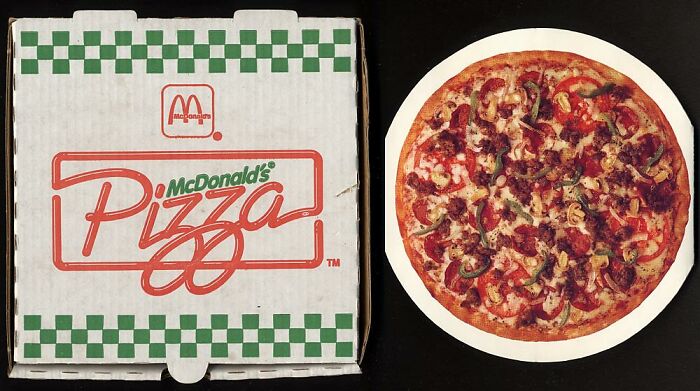
Image credits: CohibaVancouver
#21
In 2012, after a three-year hiatus in the sport, F1 team Lotus signed driver Kimi Raikkonen for the 2012 season.His contract included a clause that stated that Raikonnen would earn 50,000 euros for every point he scored in the two seasons of his contract.
Raikonnen then went on to finish third in the 2012 championship, and 5th in the 2013 season, which was exceptionally impressive for Lotus.
In doing this, he got 390 points in two seasons, and Lotus had to pay him 50,000 euros for each point, so he earned 19.5 million euros off of that bonus alone, which lead to Lotus almost filing for bankruptcy.

Image credits: Aimaan-Zakaria
#22
Not a company, but a country. the Northern Ireland renewable heat incentive. Basically, they came up with the bright idea of encouraging people to use renewable power by paying people to do so. Except you got more back per unit than the cost per unit. So people would buy an electric heater, put it on 24/7, get the money, use the extra money to buy another heater, plug that in for 24/7, get more money, buy another heater and so on. £500 million later they realized it wasn't such a good idea, the government collapsed and didn't reform again for 3 years.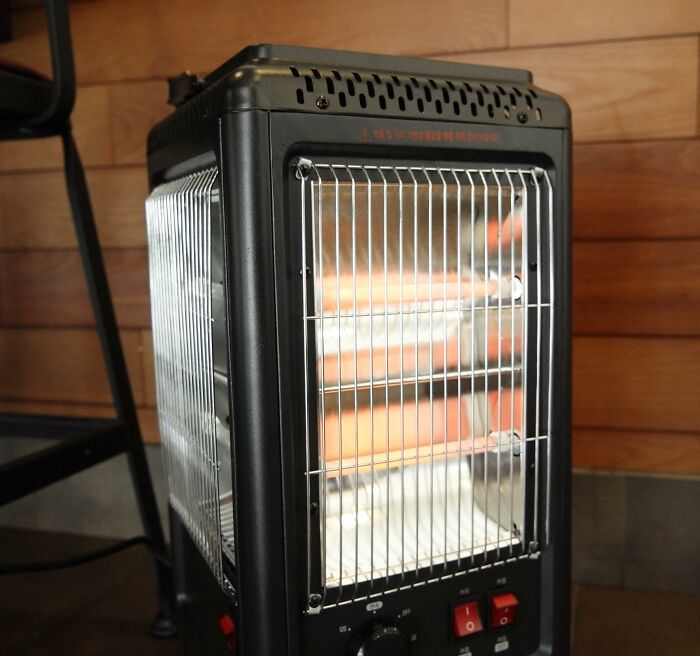
Image credits: heinzbumbeans
#23
YouTube's choice to require Google+ to comment at one point was a really bad time for them.#24
Kodak completely went under when they chose not to adopt digital photography. They eventually came back several years later, somehow.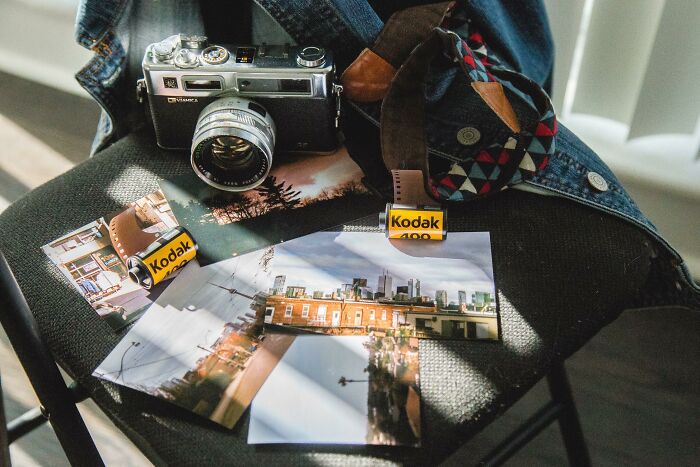
Image credits: thehankinato
#25
in my hometown, a group of coffee shops and other small businesses didnt like the loud noise and smoke from busses coming and going all day because the bus terminal was right around the corner from them. they complained about it, they moved the terminal somewhere else. not long after, they realized (too late) that most of their business came from people waiting for the bus or just stepping out the bus. the place is a wasteland now#26
Friendster followed by MySpace.Friendster shot themselves in the foot with a ton of bad decisions that led to stuff like looonnnngggg login times for basically no reason. It is weird to think that for a short time, Friendster was big and hip enough that I actually had it one of my business cards around 2000.
All MySpace had to do was not change, so people could come back to it after checking out FB. Instead, they got rid of everything people liked about the site and didn't make any beneficial changes. When people popped back in looking for a FB alternative, they found a weird new music-focused version...
#27
Hoover UK free airline ticket disaster.I remember this at the time. They tried to make it as difficult as possible to claim the flights, the idea being people would likely buy an expensive Hoover, not fulfil the criteria properly (or just never take the flight) and they'd be in profit. They underestimated how focussed British people will be to get free stuff. People would buy the cheapest thing they could to qualify, send all the forms off perfectly, then try to take legal action when the free flights didn't happen.
#28
MoviePass.MoviePass was a weird one. Their model was too good to be true. They lost money on every subscriber who was seeing more than 2 movies a month which, IIRC, was almost all of their subscribers.
That on top of the local movie theater offering infinite refill year long popcorn buckets for like 60 bucks and we abused both to the max. Easily spent the cost 50x over. We saw like every movie that came out in like groups of 7-8 people off of 2 cards and 1 bucket. It was a wild time.
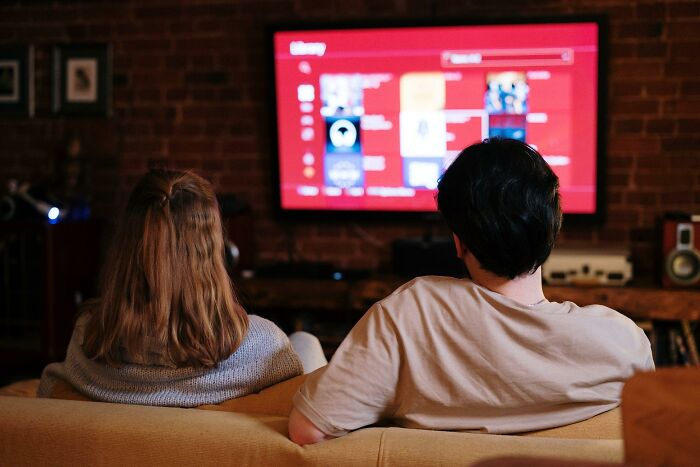
Image credits: contrarian01
#29
Has anyone mentioned little Caesar’s? In the mid 90s, they decided to veer away from what had always brought them success. Cheap pizza. They plunged into delivery pizza, sandwiches, etc., raising their prices and not really trying to increase the quality of their food.At the time, they owned the cheap pizza market across most of the US. Slowly, that position decayed. They closed many stores, and were on the verge of disappearing. What saved them? $5 hot and ready pizza. It brought them back to life and they continue to grow.
#30
Blockbuster. They had an offer from Netflix that they turned down. but that's not really what sank them. Blockbusters streaming service was doing very well in the early days of streaming. What happened was a combination of new management and existing debts that were too great to pay off.Blockbuster bought some other companies and properties on debt expecting to be able to pay them off with the new income from those new assets. When the economy crashed Blockbuster couldn't pay those debts and that was that. It took two years before they filed for bankruptcy.
#31
My Pillow's CEO is quickly running his company into the ground as we speak...#32
Blackberry. Most popular smartphone in the world. And then they were less than 1% of the market share, their stock value dropped like the present day wildfires. A couple of years ago they announced that they would focus more on software and essentially gave up making phones which oddly enough saved the company.To add to the explanation: At their peak, they had 32.2% of the market. They fell to 7% in 2015. Present day, they're basically a footnote in history. As other commenters have stated, lots of BB executives took advantage of their market share and thought a flat touch screen wouldn't take off the way it did. Bunch of poor decisions later, their shares fell from $148 in 2008 to .60 cents just a few years ago. They're back up to around $10. How the mighty have fallen.
Never. Ever. Take your life or business for granted.
#33
Vine. It seemed like the best thing at the time.Vine burned up all their investment capital to get WarheadADHD to think it was "like the best thing at the time." So investors were like "Oof. Finally. That cost us a lot of money. Now can you please flip the 'make us some f**king money' switch so we can recoup our losses?"
But Vine had this huge competitor in Youtube. And Youtube didn't have to be profitable because it was bankrolled by Google.
So Vine said "Investors, please. If I flip the 'make you some f**king money' switch (by filling the service with ads or whatever) all these new users will just abandon us." And the investors were like "Then what the f*ck is the point of all this?" And thus Vine died.
It would come back years later as TikTok, from China, because the Chinese could copy all the design work from old dead Vines, and make the cost of operation super low. Also, Google was finally trying to flip the "make us some f**king money" switch on Youtube, which gives TikTok some breathing room to monetize.
#34
I used to work at a Kmart. They never bothered to update any of the store layouts, and they were more concerned with signing people up for their rewards card and/or credit cards, which led to longer lines, which led to more complaints...you get the idea. Also, the merger with Sears was the final nail in the coffin. Now, all the Kmarts in the area are closed.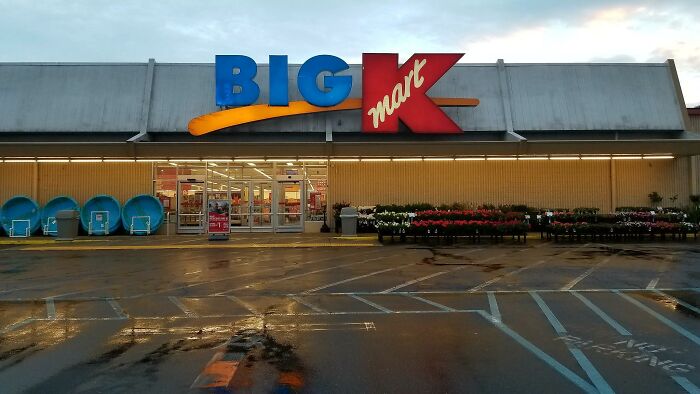
Image credits: theycallmemomo
#35
Barnes and Noble. They just kept making bigger stores with less and less books.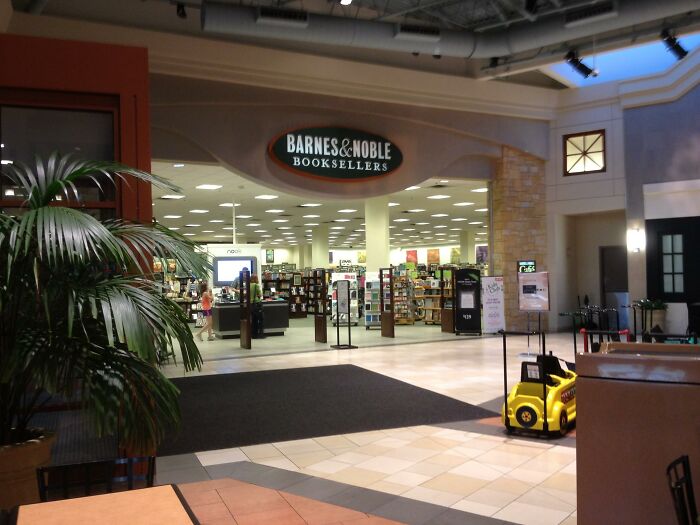
Image credits: RagnarDann3skj0ld
#36
Circuit City. Major retail chain in the 1980s that collapsed under mismanagement. It’s arguably biggest blunder was firing all of their experienced, better paid workers for cheaper inexperienced ones. Apparently selling merchandise and keeping customers happy is important in the retail business. Who knew?#37
Schwinn. The executives of America's most venerable bicycle maker could not be convinced that mountain bikes were anything more than a fad. They made one and called it the Klunker (yes, really). Then when they realized it wasn't, they got some small Asian company to design a mountain bike for them ... giving them basically all they had ever learned about making bicycles in over a century as technical assistance. The small Asian company used this to improve its own product, and cut into what could have been Schwinn's share. Then they did it again with another Asian company. Then they opened their own retail stores, alienating the retailers who'd carried their product for years, like Apple would later but with much less success. Today, Schwinn is just a brand name someone else owns.#38
Flickr. When others opted to have unlimited image storage funded by ads, Flickr opted to limit and sell memberships. I can't say I've heard anyone mention Flickr since.#39
Toys R Us. Toys R Us was actually doing fine. It was venture capitalists going in and loading TRU with debt to make it look like it was losing money. Victim of the game.#40
Quibi when it decided that 10 minute clips watched in portrait on a commuter train is the future of home entertainment.
Image credits: oftenGetsItWrong
#41
Borders Books. It had to chance to be Amazon, from Amazon, before Amazon, and turned it down.Amazon Books, as it was then called, was a small online bookseller. It had a rather incompetent search engine, titles were misclassified, and it dabbled in office supplies. It was one early "e-tailer" among many. Amazon's pitch was that it was trying to be an online version of the retail giant Staples and it could ship quickly.
Then a conversation happened with the giant Borders Books. This Internet thing was starting to look like it would harm retail sales, so Borders contacted Amazon, and asked them to build some online inventory, a web-storefront and a sales management system.
Because of the dot-com bust, Borders got spooked. The Internet was a passing fad. Amazon could keep the system, Borders wanted out. By 2007, Borders ended its marketing alliance with Amazon, but Amazon had began using the system it built for Borders: Amazon did keep the system. It was a much, much better system than Amazon was using itself.
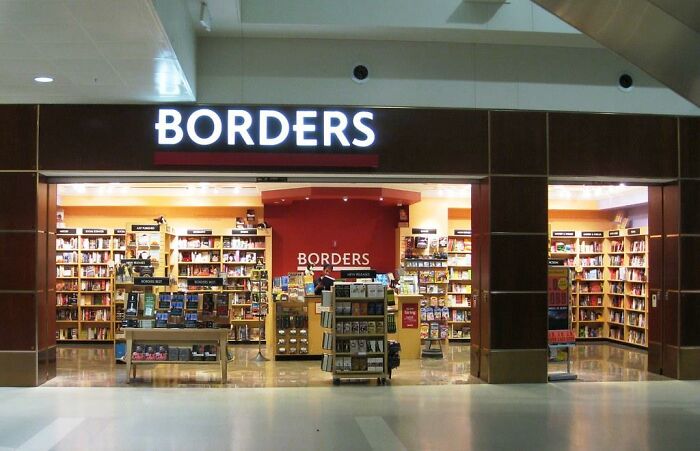
Image credits: Hattix
#42
WWE's mistreatment of former talent and fixation on Roman Reigns. This is ongoing and non-wrestling people will find this interesting. Roughly 8 years ago one of their top guys, CM Punk, infamously quit with no warning because of how overworked, bullied and ripped off he was behind the scenes. He had big companies come to him for endorsements, advertisements, merchandise, the whole nine yards but WWE declined all of it because they wanted John Cena or Brock Lesnar to be the only ones with those types of things. In the past two years much of the stars WWE built on their main roster have begun leaving the company to persue work at AEW, which is less toxic, more open and doesn't overwork their talent. Recent stars persuing AEW were fired with barely any warning, because WWE now wants to piss away money gambling on making the next John Cena by acquiring bodybuilders they'll hopefully mold into the next big thing. Their fixation is on Roman Reigns being the new John Cena, only he hasn't been successful at winning over the bulk of the audience. They've been pushing him to the spotlight for seven years, giving him cringey catchphrases and lines. It took him getting cancer and becoming a bad guy to be liked but he isn't selling the merch numbers John Cena was 8 years ago. To add fire to the flame, CM Punk came out of his 8 year retirement and returned to his hometown last Friday at an AEW event. The crowd was so deafenly loud that you could barely hear his themesong. This company allowed him the freedom to pay for free icecream for everyone in attendance, the story was featured on SportsCenter and he has been interviewed by several publications. These are all things WWE would have never let happen. On the horizon right now are another two of WWE's biggest stars bound to join AEW in less than a month. AEW also acquired a deal with WWE's former game developer partner, after a falling out they had with WWE because the company was overworking the developers and the devs wanted more time to work at a less stressful rate. WWE inadvertently created arguably its biggest rival yet, scorned their biggest stars, ruined their videogame partnership and are STILL fixated on a guy less charismatic than AEW's top stars.#43
I haven't seen Theranos mentioned, but holy hell that was one bad decision after another.It all stemmed from the founder and CEO Elizabeth Holmes who had the honestly admirable goal of wanting to run a bunch of blood tests using a single drop of blood.
Unfortunately, reality got in the way and they learned that it turns out you need well over a drop of blood for any blood test to be accurate.
Holmes (she's comes across as a complete narcissist) refused to budge on the requirement and basically fired anyone who told her that what she wanted was impossible.
Despite being once valued at over $1B, the company never once produced a reliable product, is now competent defunct, and the founder is facing criminal charges of conspiracy to commit wire fraud as well as a class action civil suit.
#44
RadioShack. Those guys just couldn’t make their niche happen and never attempted to evolve.#45
Netflix almost did as they made the transition from dvds. They had a period where they dropped to dangerously low subscriber#46
Can we get an honorable mention for Staples and its multiple attempts to merge with Office Depot despite the fact that they're both on track to die within the decade?#47
Target's foray into the Canadian market is probably the greatest business failure in Canadian history. After buying all the old Zellers locations, which was already an ambitious starting point, they introduced an extraordinarily complicated inventory system no one was familiar with despite it being legendary in the industry for being difficult to work with, their checkout software was glitchy, they had weird, sterile stores with no music or atmosphere, constantly had empty shelves because of supply chain issues despite having warehouses absolutely bursting at the seams with product (to the point that they had to rent extra storage space to hold all their inventory, which, again, was not in their stores) and had much higher prices than Wal-Mart or even Zellers (which surprised Canadians because we always wanted it here because they have great deals in the US). Within two years of opening they had filed for bankruptcy protection and were out of the country entirely 3 months later. In the end they lost billions, cost tens of thousands of people their jobs, and ruined the Target brand in Canada for probably a generation. You couldn't have a worse launch of a national retailer if you tried.#48
Starbucks in Australia and, to a lesser extent, New Zealand.It completely misread the market.
Australia has a really vibrant Italian migrant community. When they came over they brought their espresso culture with them. Literally every street corner in Melbourne, Sydney, or Canberra is filled with fourth wave cafes that serve single origin geishas or something like that. Even 7-11 $1 cappuccinos taste better than any Starbucks I've ever had.
#49
A famous blizzard quote is “you think you want this, but you really don't”. Slowly ruining all their IP's over the last 5 years, instead of listening to the player base. Every IP they had just slowly fading into non-existance.#50
Playboy, when they stopped including nudes.#51
U.S. Fire Arms Manufacturing Company. They used to make really old western style revolvers then they decided to spend a f**k ton of money making a gun called the Zip 22 which is now considered one of the worst guns ever made. They went bankrupt fast.#52
I'll go for a rare one.AMF In April 1996 they were bought by Goldman Sachs for 1.4B In November of 97 they went public By 2000 they were so devalued they were delisted from the stock market In 2001 they went under.
They failed to realize the drop in popularity in bowling, but continued to expand. Coupled with bad business decisions to raise prices on a sport that was seen as blue collar, they pushed more people out. Everything they did in the face of a changing market was wrong and killed hundreds of bowling alleys across the US.
Now days that are owned by Bowlero
#53
Back in the late 90's I worked for a business that shared a building with a company known as "Teledesic". Their goal was to have a global network of low-Earth-orbiting satellites that provided broadband access to pretty much everyone on the planet. They were financed by tech titans in the wireless communications space. It all seemed like a great idea. The only problem was that the technology wasn't there yet. They went bankrupt in 2002. The Teledesic Case Study is taught at Harvard Business School and other MBA programs as a cautionary tale.#54
WeWork, a typical Unicorn with a chaotic leader and billions upon billions in unstable assets.#55
TWA - Trans World Airlines - was a victim of a corporate raiding more than a bad decision, but it's still a good story.TWA was a storied brand that, like many other legacy carriers, was struggling to compete in the post-regulation era. In need of cash, they found an investor in corporate raider Carl Icahn. Icahn purchased enough shares to become majority shareholder, infusing much needed cash into the operation, and included in his takeover clause that TWA would sell seats on TWA flights at-cost (zero profit) to any of Icahn's companies.
It sounded like maybe TWA would give away a few seats to some corporate business travelers. Nope. Icahn also owned a travel agency, and that travel agency sold thousands and thousands of seats to the general public at-cost. TWA would have full flights that made no money. Hamstrung by their inability to increase fares, TWA had no choice but to lower service, cut frills, eliminate popular but unprofitable routes, outsource support, and in general make flying TWA a miserable experience. TWA was sold to American Airlines in 2000.
#56
This one doesn’t get a lot of attention, but Suncoast started selling Netflix subscriptions back when it started up and was just a company that sent DVD’s through the mail… and now it’s hard to find a Suncoast. Granted, streaming wasn’t a thing, but they were already offering subscriptions to a service that was by definition making them obsolete.#57
Here's one you don't know- Publications International Ltd., or "PiL". They made those thick paperboard books for kids with the buttons on the cover that play sound effects.It was owned by one guy who had 95% of that market and basically spent so much time on his boat in Florida not letting others control the inner workings of the company that he forgot about a recurring loan and had the company taken over by his banks.
There's still a remnant of it lingering but it's tiny and not putting out product at anything like the rate they used to.
#58
Windows PhonesIf heard right, they advertised to make seamsless windows operations with phone and PC when win10 will come out. Then win10 came out but the phone op system connection didnt realy work, only years later.
Microsoft decided not the continue the project.
#59
Chrysler, late 70s.Started out a luxury car. The bean counters came in and told them that if they eliminated x feature, they could save y$ per year.
This process went on for some time, until what they had left was just a crude car selling for big $$.
They went bankrupt. The gov’t had to bail them out.
Source: a buddy who worked there.
#60
Cricut. They wanted to start charging for using the Design Space, and limiting the amount of projects you could upload at any one time. This meant if you uploadad a project, had to tweak and reupload, that would be two projects. This would have been in addition to Cricut Access. It did not go down well and lead to a lot of people returning their machines and cancelling Access memberships out of protest. If anyone knows more/I'm incorrect please let me know!#61
A very obscure example, but oh well: Polish social media site Grono. It was massively popular in the 2000s, and even though Facebook existed it was not widely used. Grono (besides regular social media stuff) had discussion groups, more customizable profiles, and was a hundred times more appealing option. You weren't limited to your friends list and could make new friends and such....until one day the site was suddenly revamped into an ugly, unusable clone of Facebook. The users were outraged and left the site in protest. When admins realized they f*cked up, they erased the option to delete your account!!
The site became a ghost town very fast. Very little people were still using it... until Grono suddenly revamped the site again- into a file hosting website. All content the users made was lost permanently. It shut down in 2012.
#62
Yik YakIt was completely anonymous message posting at first.
I actually talked to the original founders at a start up intern fair in Atlanta back in Nov 2013. And they said their app was supposed to be some online localized public bulletin board where people can post about events or parties or study groups. Obviously it became like a fun anonymous messaging app.
They then obviously started to I guess make it less anonymous by introducing usernames which while they can still be throwaway username like we use on Reddit it certainly made people lose favor of the app. The eventually shutdown and I think Square acquired their employees for some amount of money. I think between $1-3 mil.
Crazy to think they were at one point valued at $350 mil..

Image credits: downtimeredditor
#63
Digg.com went from user-submitted and generated to paid contentReddit actually looked like garage students building an app. Digg was getting funded with hundreds of engineers on payroll.
Reddit is like version 1.11a of Digg 2.0. It's backwards but it's what the people wanted
#64
Ratners jewelry store in the UK. The owner and founder went to a meeting and described their own products as total cr*p. Lost the company about five hundred million pounds in market value back in 1991.To be fair anyone with a modicum of taste already knew this about Ratners stuff. I think the Sun newspaper heavily reported on it and their readers were pretty much Ratners target customers.
#65
My brother and his wife used to live in Kansas City, where Montgomery Wards was headquartered, and for a while in the 80s and 90s, they would give credit cards to anyone who could fog a mirror. They worked at the HQ one year as post-Christmas help in their credit card department in the early 1990s, and they said then that the default rate on those no-questions-asked cards was so high, the company was never going to recover.And it didn't. It does still exist, but is a small percentage of its former self.
Shopko (which was kind of like Target) also went overboard in expanding ca. 2000, and that whole chain shut down a year or two ago.
#66
GAME in the uk.Already had way to many stores per town. Their "rival" Gamestation was going to the wall, so GAME decides to buy it.
As it would have given them a massive share of the market, Monopolies and Mergers stated that if they brought them, they had to leave all the Gamestation stores open.
Rather than backing out, they went and brought them. Now, along with already having too many stores, they had failing stores on their books.
Combined with physical media shrinking in the video game sector, they went to the wall not long after.
They shut all the GAME stores, but left Gamestation open. Then, once they had been rescued, they either rebranded the Gamestation store back to GAME, or had 1 store in the previous best location in that town.
